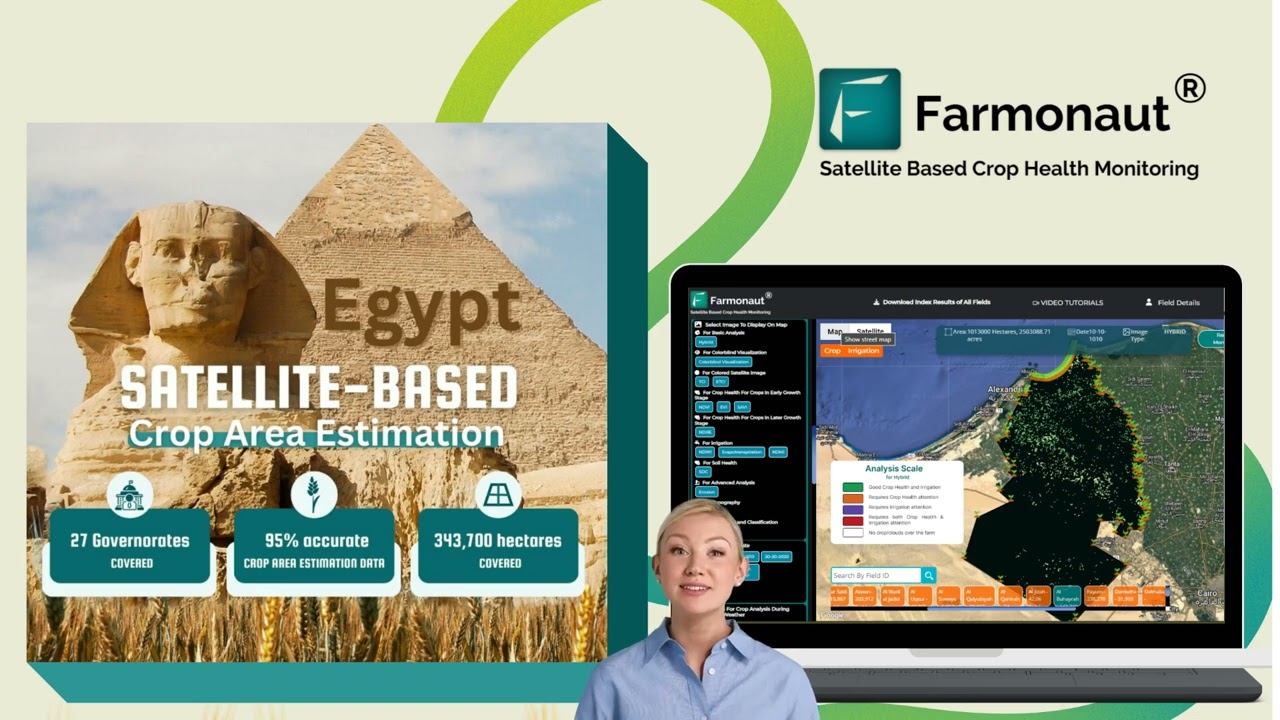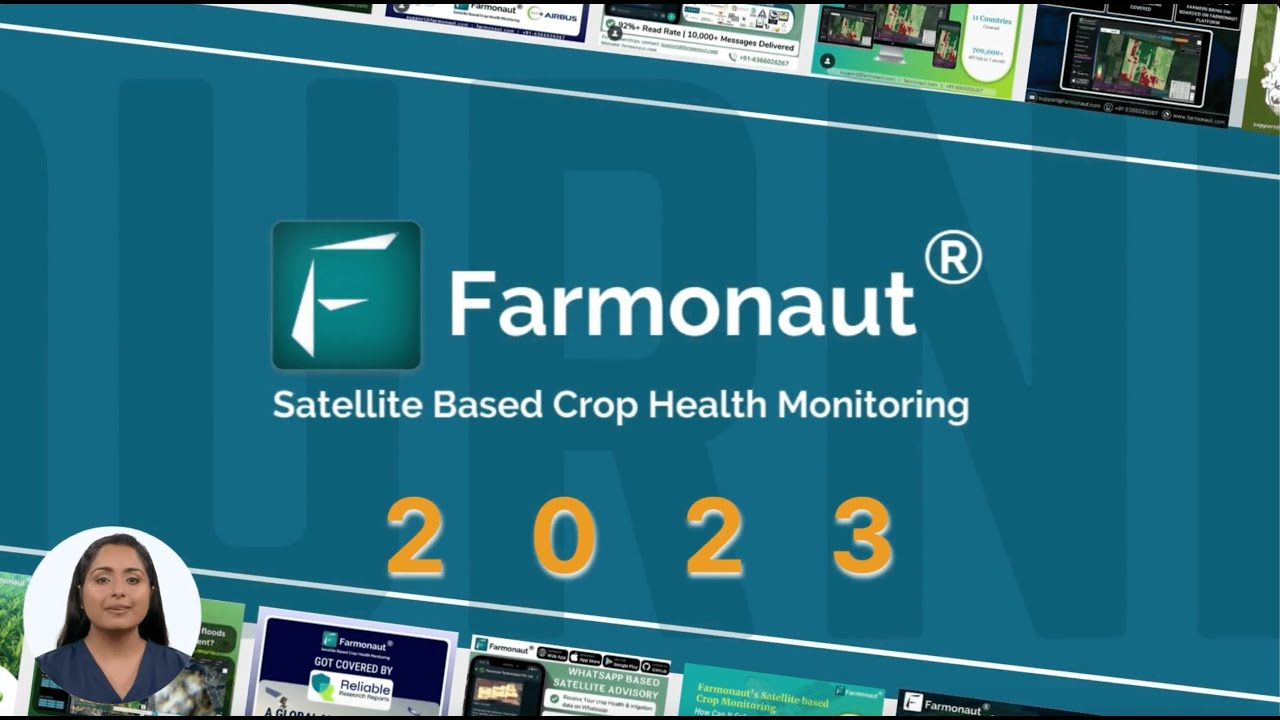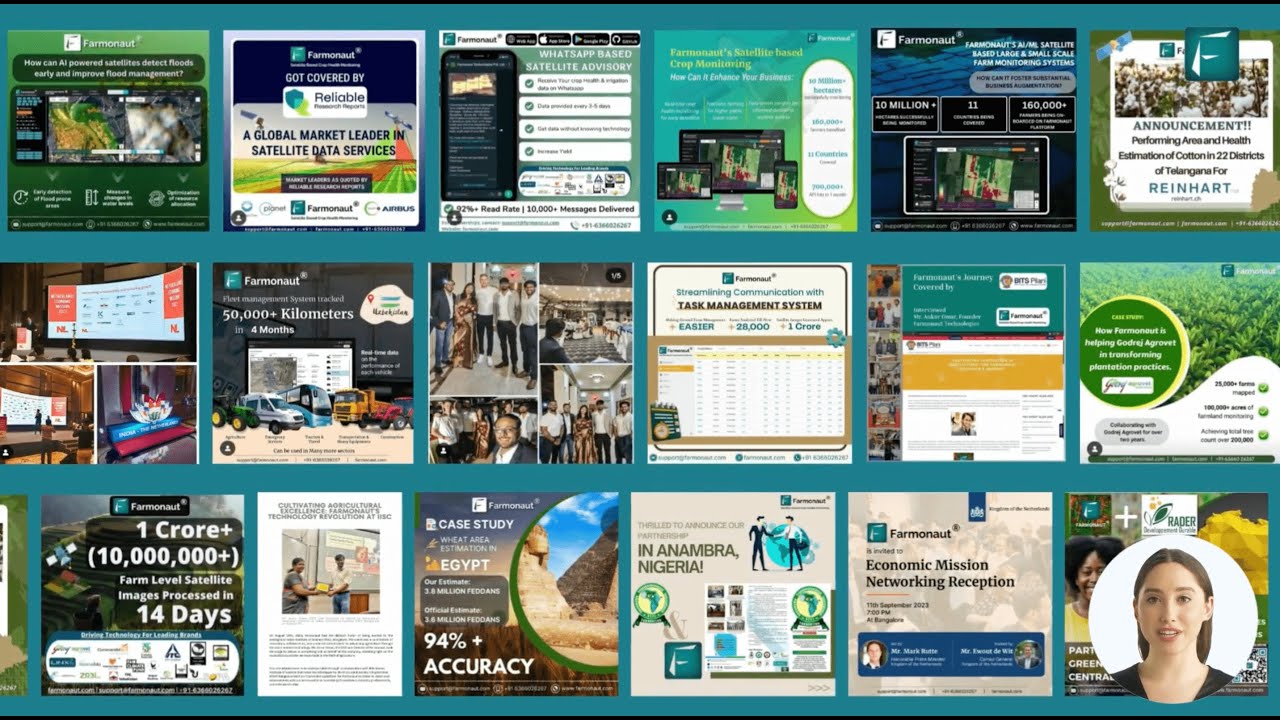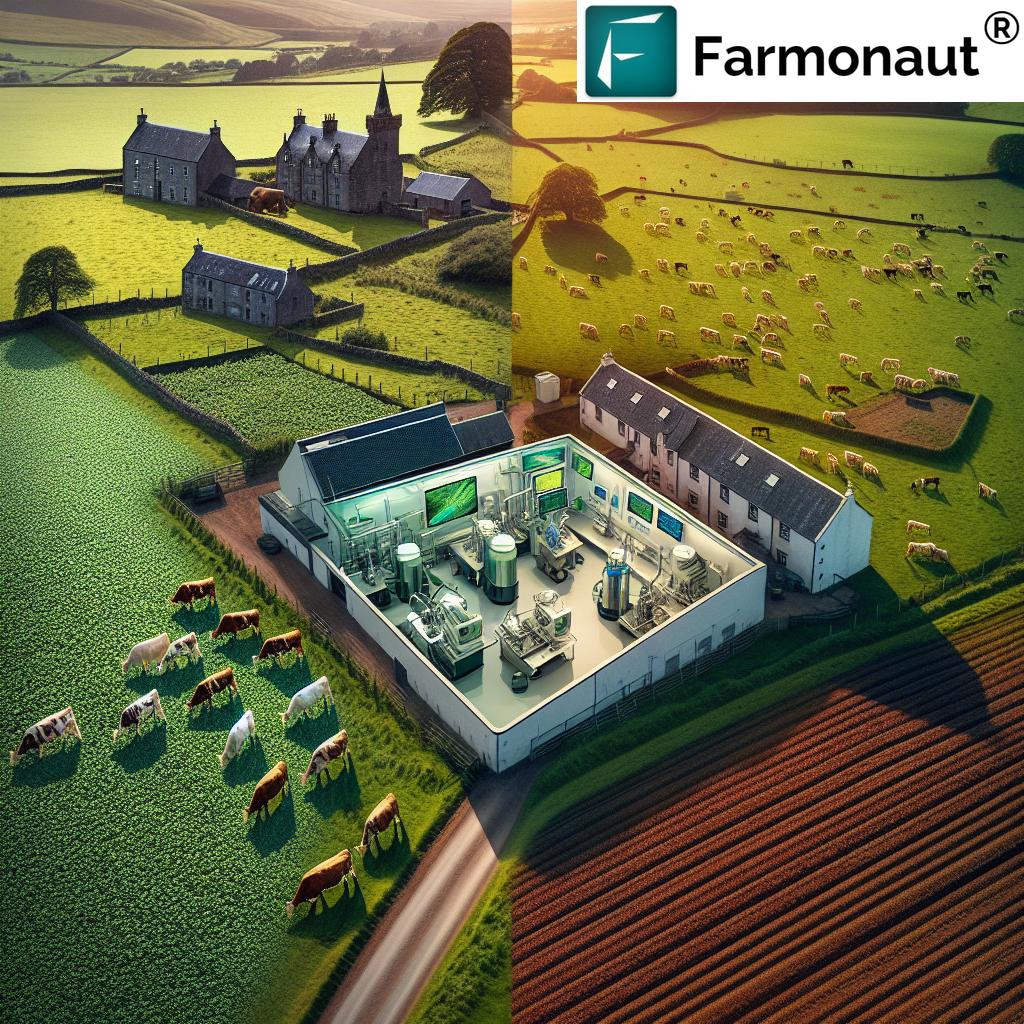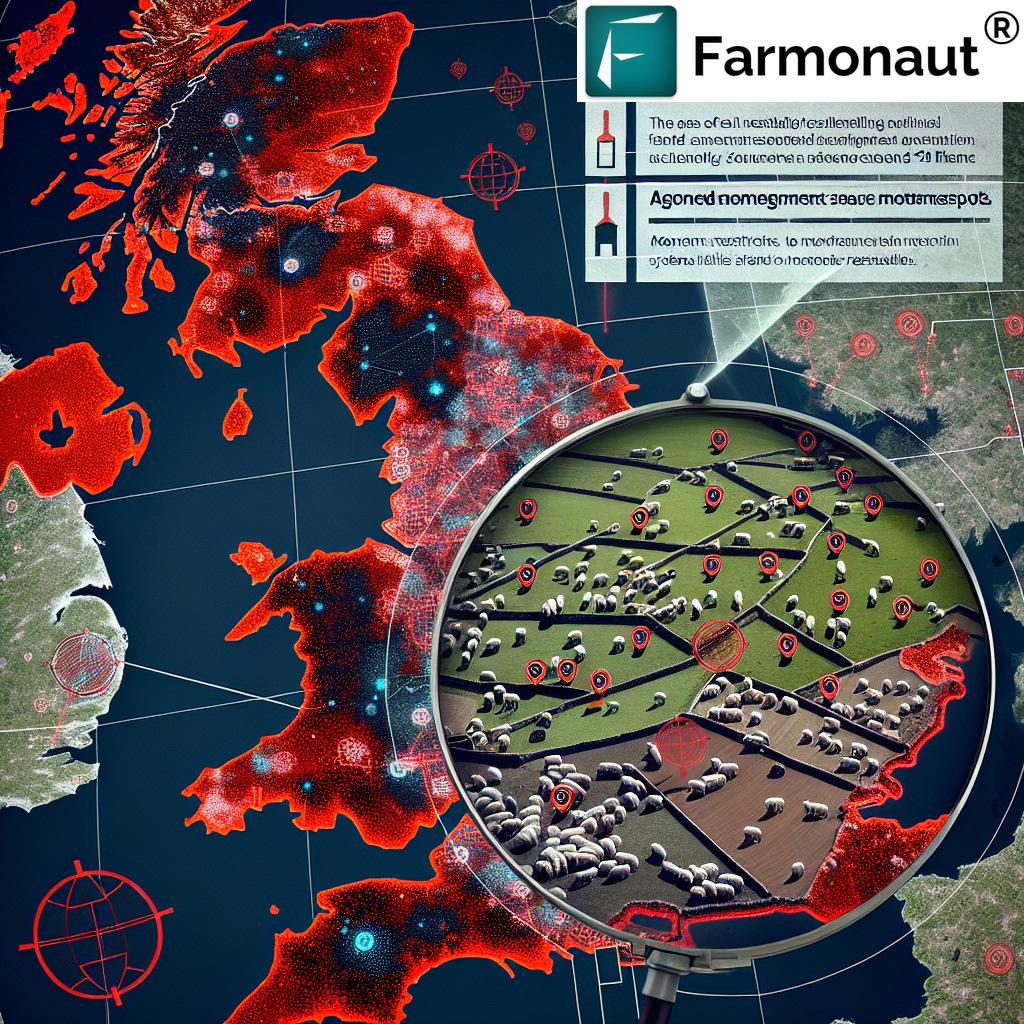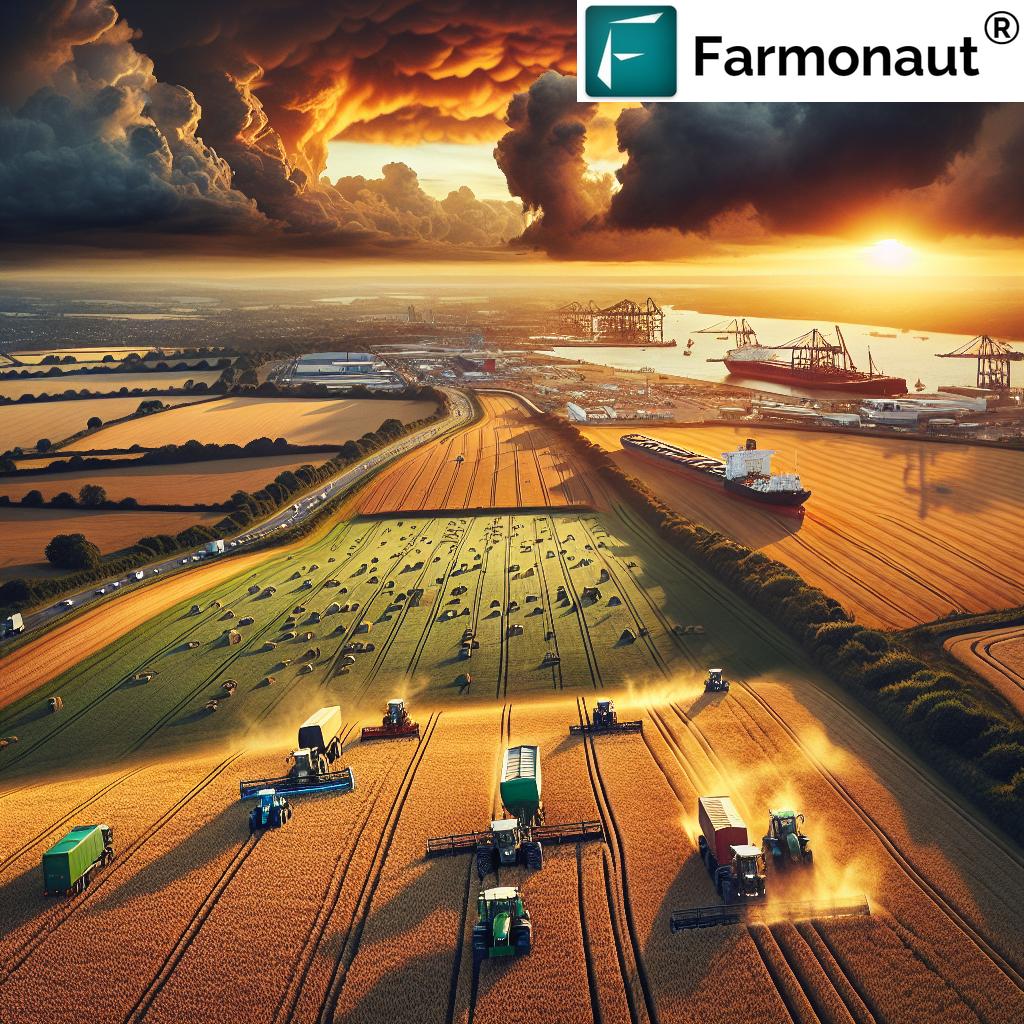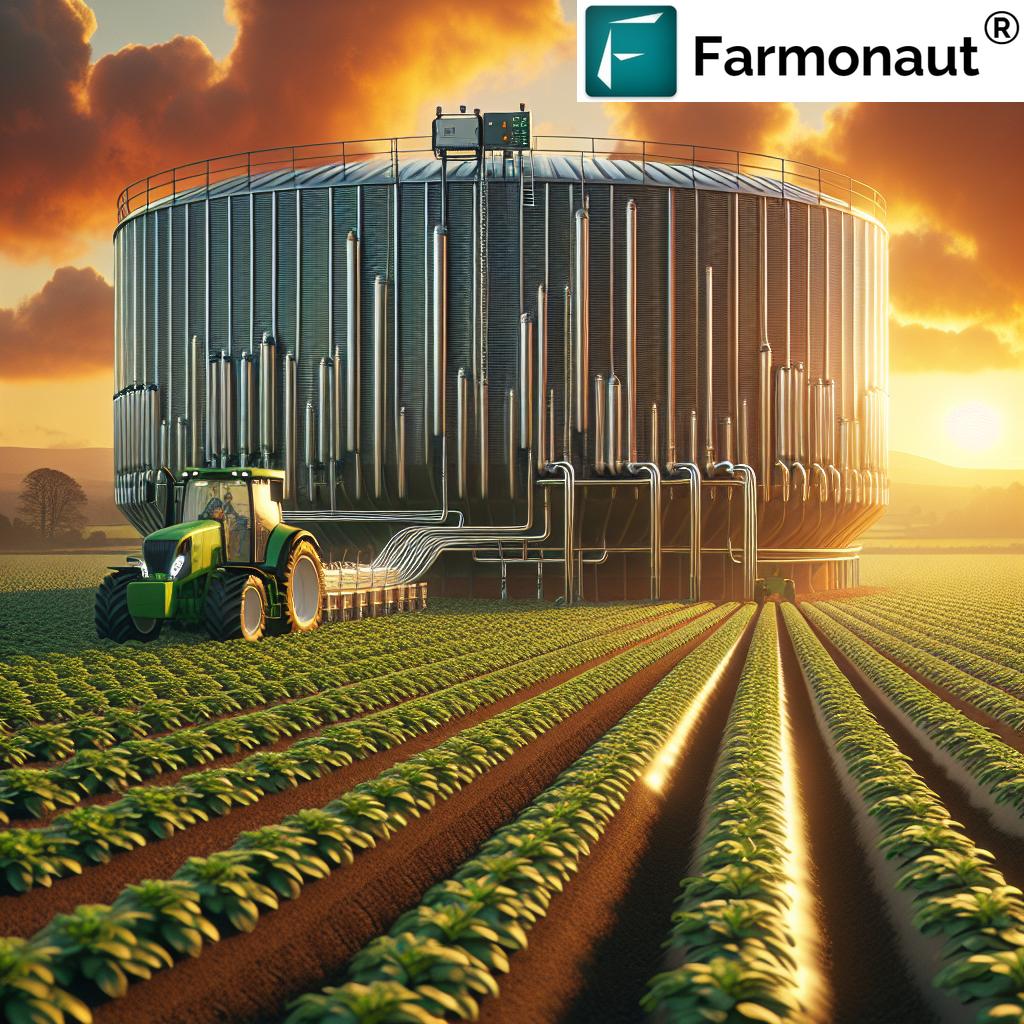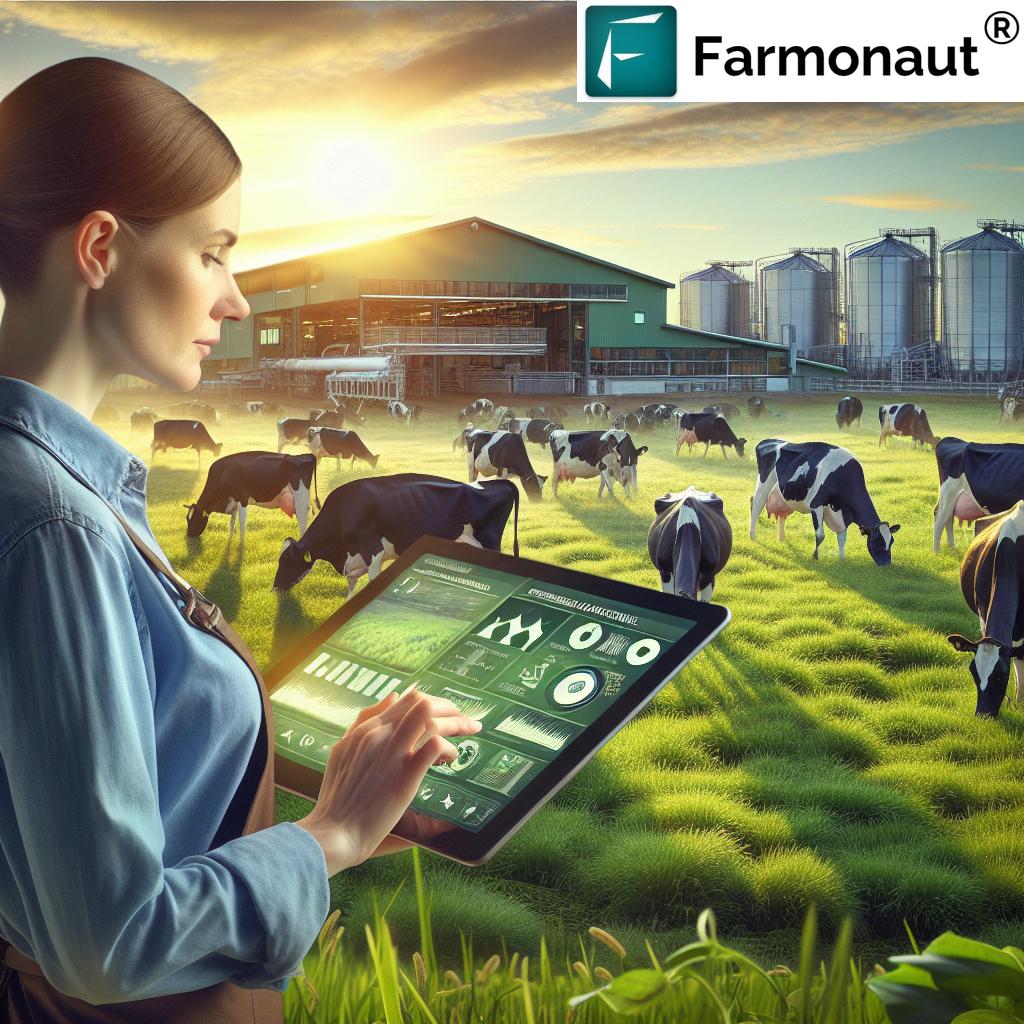Unlocking UK Agricultural Success: Farmonaut’s Guide to Market Trends, Crop Management, and Sustainable Farming Practices
“UK farmers managing barley crops face challenges from net blotch, a disease affecting over 70% of fields annually.”
Welcome to Farmonaut’s comprehensive guide to UK agriculture, where we delve into the latest market trends, crop management strategies, and sustainable farming practices. As leaders in agricultural technology, we’re committed to providing farmers, agribusinesses, and policymakers with the insights they need to thrive in today’s dynamic agricultural landscape.
The State of UK Agriculture: An Overview
The UK agricultural sector stands at a crossroads, facing challenges and opportunities in equal measure. Brexit, climate change, and evolving consumer preferences are reshaping the industry, demanding adaptability and innovation from farmers and stakeholders alike. In this blog post, we’ll explore key aspects of UK agriculture, from market analysis to sustainable practices, providing you with actionable insights to drive success in your agricultural endeavors.
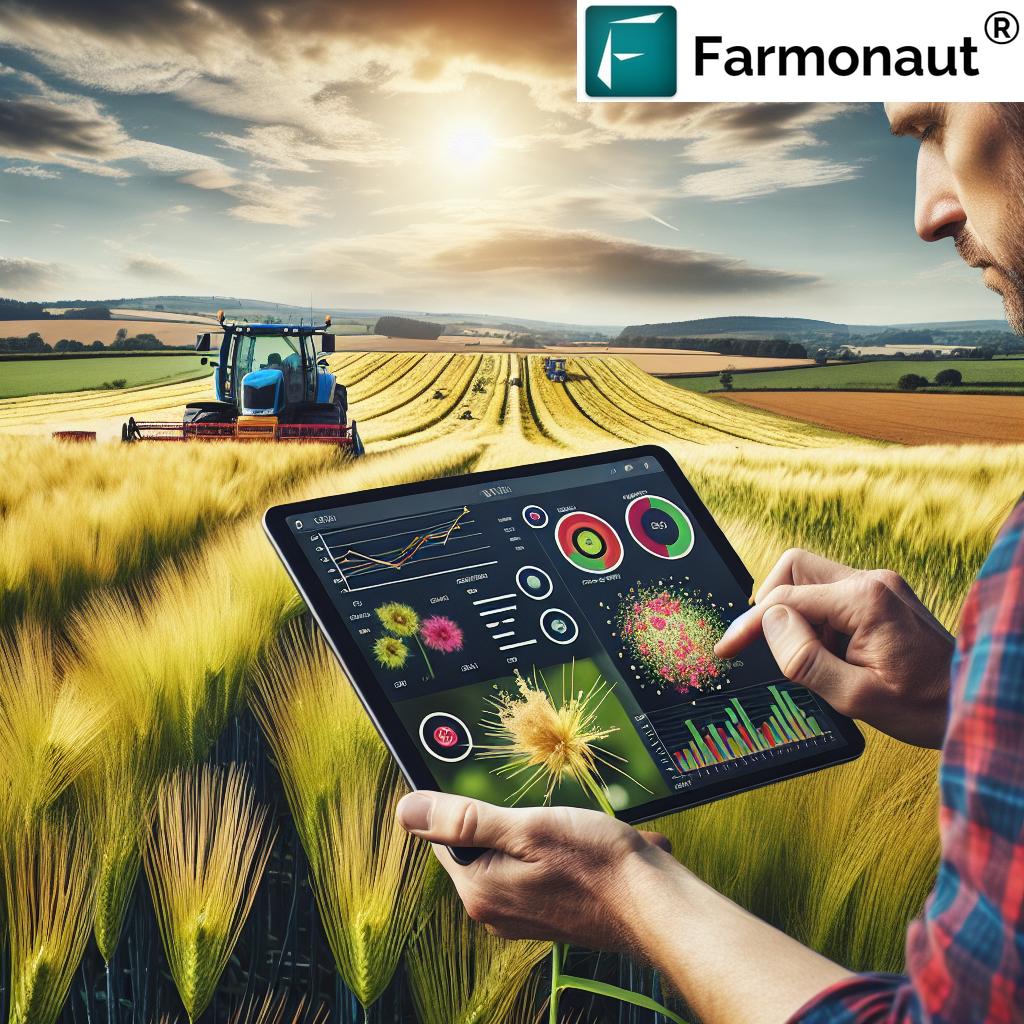
Agricultural Market Analysis: Key Sectors in Focus
Understanding market dynamics is crucial for making informed decisions in agriculture. Let’s examine the performance of key UK agricultural sectors:
| Sector | Estimated Annual Production | Average Price Trend | Primary Export Markets | Sustainability Index (1-10) |
|---|---|---|---|---|
| Cereals | 22 million tonnes | Stable | EU, North Africa | 7 |
| Dairy | 15 billion litres | Increasing | EU, Asia | 6 |
| Beef | 900,000 tonnes | Stable | EU, USA | 5 |
| Oilseeds | 2.5 million tonnes | Increasing | EU, China | 8 |
This overview highlights the diverse nature of UK agriculture and the varying challenges and opportunities across sectors. Let’s delve deeper into each area:
Cereals Sector
The UK cereals sector, dominated by wheat and barley, remains a cornerstone of British agriculture. Recent market trends show:
- Stable production levels, with slight fluctuations due to weather conditions
- Increasing demand for high-quality milling wheat for domestic consumption
- Growing interest in alternative grains like oats and rye, driven by health-conscious consumers
Farmonaut’s satellite-based crop health monitoring system has been instrumental in helping cereal farmers optimize their yields. By providing real-time data on vegetation health (NDVI) and soil moisture levels, we enable farmers to make informed decisions about irrigation and fertilizer application.
Dairy Sector
The UK dairy industry has shown resilience in recent years, adapting to changing market conditions:
- Increased focus on value-added products like artisanal cheeses and organic milk
- Growing exports to Asian markets, particularly China
- Adoption of precision farming techniques to improve efficiency and reduce costs
Our Jeevn AI Advisory System has been particularly beneficial for dairy farmers, providing personalized recommendations on feed management and herd health based on real-time data analysis.
Beef and Lamb Sector
The UK’s beef and lamb sector faces both challenges and opportunities:
- Stable domestic demand, with increasing interest in locally sourced, high-welfare meat
- Potential for new export markets post-Brexit, particularly in the Middle East and Asia
- Growing emphasis on sustainable grazing practices and carbon sequestration
Farmonaut’s blockchain-based traceability solutions are helping beef and lamb producers build consumer trust by providing transparent information about the origin and journey of their products.
Oilseeds Sector
The oilseeds sector, primarily rapeseed in the UK, is experiencing positive growth:
- Increasing demand for plant-based oils in food production and biofuels
- Strong export potential, particularly to EU markets
- Adoption of precision agriculture techniques to improve yields and reduce inputs
Our satellite-based crop monitoring services have been particularly effective in helping oilseed farmers identify and address potential issues early, leading to improved yields and quality.
Crop Management Strategies: Focus on Barley Disease Management
Effective crop management is crucial for maximizing yields and maintaining crop health. One significant challenge facing UK barley farmers is the management of diseases, particularly net blotch. Let’s explore this issue in detail:
Understanding Net Blotch in Barley
Net blotch, caused by the fungus Pyrenophora teres, is a major threat to barley crops in the UK. Recognizing net blotch symptoms early is crucial for effective management:
- Initial symptoms: Small, brown spots on leaves
- Advanced stages: Elongated lesions with a netlike pattern
- Severe cases: Leaf death and significant yield reduction
Farmonaut’s advanced satellite imagery and AI-powered analysis can help detect early signs of net blotch, allowing farmers to take prompt action.
Strategies for Net Blotch Control
Effective management of net blotch requires an integrated approach:
- Crop rotation: Avoid planting barley in the same field for consecutive years
- Resistant varieties: Choose barley varieties with known resistance to net blotch
- Fungicide application: Timely application of appropriate fungicides
- Cultural practices: Proper field hygiene and stubble management
- Monitoring and early detection: Regular field scouting and use of advanced technologies like Farmonaut’s satellite monitoring
By implementing these strategies, UK barley farmers can significantly reduce the impact of net blotch on their crops, ensuring healthier plants and better yields.
Sustainable Farming Practices in the UK
“The UK’s agricultural carbon market is projected to grow by 25% annually, offering new revenue streams for farmers.”
Sustainability is no longer just a buzzword in UK agriculture; it’s a necessity. As environmental concerns grow and consumers demand more eco-friendly products, farmers are increasingly adopting sustainable practices. Here’s how the UK agricultural sector is embracing sustainability:
Precision Agriculture and Resource Management
Precision farming techniques are revolutionizing UK agriculture, allowing farmers to optimize resource use and reduce environmental impact:
- Satellite-based monitoring: Farmonaut’s technology enables precise tracking of crop health and soil moisture, reducing water waste and optimizing fertilizer use.
- Variable rate technology: Applying inputs like fertilizers and pesticides only where and when needed, minimizing environmental impact and costs.
- GPS-guided machinery: Reducing fuel consumption and soil compaction through precise field navigation.
These technologies not only improve sustainability but also boost farm profitability by reducing input costs.
Regenerative Agriculture
Regenerative farming practices are gaining traction in the UK, focusing on improving soil health and biodiversity:
- Cover cropping: Planting crops between harvests to protect and enrich soil.
- Minimal tillage: Reducing soil disturbance to maintain soil structure and microbial life.
- Crop rotation: Diversifying crops to improve soil health and break pest cycles.
Farmonaut’s AI advisory system can help farmers implement these practices effectively by providing data-driven insights on soil health and crop rotation strategies.
Carbon Farming and Emissions Reduction
With the growing focus on climate change, UK farmers are exploring ways to reduce emissions and sequester carbon:
- Agroforestry: Integrating trees into farmland to increase carbon sequestration.
- Improved grassland management: Optimizing grazing practices to enhance soil carbon storage.
- Renewable energy adoption: Installing solar panels and wind turbines on farmland.
Farmonaut’s carbon footprinting tools can help farmers track their emissions and identify opportunities for reduction, potentially opening up new revenue streams through carbon credits.
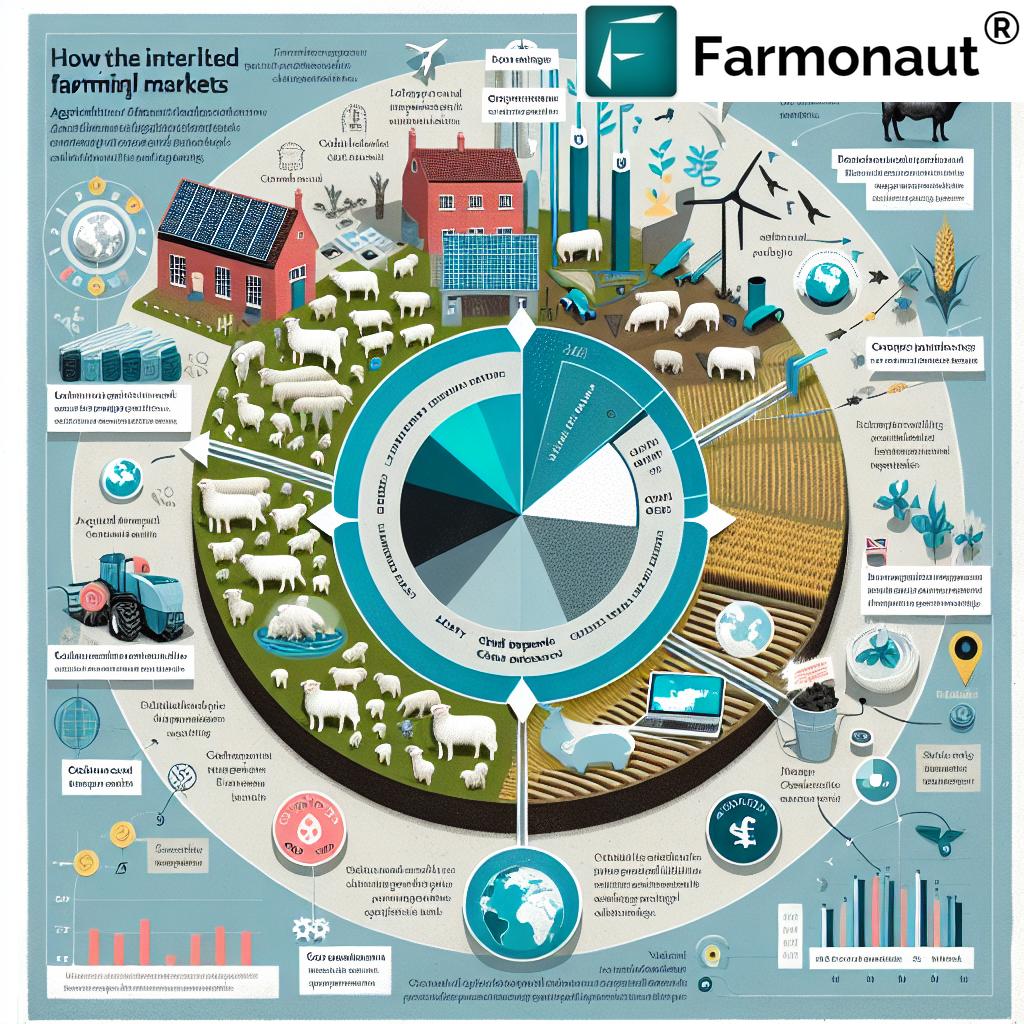
UK Agricultural Exports: Opportunities and Challenges
The export market plays a crucial role in the UK agricultural sector, with new opportunities emerging post-Brexit. Let’s explore the current landscape:
Key Export Markets
- European Union: Despite Brexit, the EU remains a significant market for UK agricultural products, particularly for lamb and dairy.
- United States: Growing demand for specialty British products like artisanal cheeses and premium meats.
- Asia: Increasing exports of dairy products, particularly to China, and growing interest in UK beef and lamb.
- Middle East: Emerging market for UK cereals and high-quality meat products.
Farmonaut’s blockchain-based traceability solutions can help UK exporters meet stringent international standards and build trust with overseas buyers.
Challenges in the Export Market
While opportunities abound, UK agricultural exporters face several challenges:
- Regulatory changes: Adapting to new trade agreements and regulations post-Brexit.
- Competition: Facing stiff competition from established global exporters.
- Currency fluctuations: Managing the impact of exchange rate volatility on export profitability.
Our market analysis tools and AI-driven insights can help exporters navigate these challenges by providing up-to-date information on global market trends and demand forecasts.
Agricultural Funding Opportunities in the UK
Access to funding is crucial for UK farmers looking to invest in new technologies, expand operations, or transition to more sustainable practices. Here’s an overview of key funding opportunities:
Government Schemes
- Environmental Land Management scheme (ELM): Replacing the EU’s Common Agricultural Policy, ELM provides funding for environmental improvements and sustainable farming practices.
- Farming Investment Fund: Offers grants for equipment and technology to improve productivity and environmental performance.
- Countryside Stewardship: Provides financial incentives for farmers and land managers to look after and improve the environment.
Private Sector Financing
- Agricultural banks: Specialized lenders offering tailored financial products for farmers.
- Impact investors: Growing interest in supporting sustainable and innovative agricultural projects.
- Crowdfunding: Emerging platform for small-scale farmers to raise capital for specific projects.
Farmonaut’s data-driven insights can help farmers strengthen their funding applications by providing evidence of improved efficiency and sustainability.
Consumer Insights: Shaping UK Agricultural Production
Understanding consumer preferences is crucial for UK farmers to align their production with market demands. Here are some key trends:
- Locally sourced products: Growing demand for food produced within the UK.
- Organic and free-range: Increasing preference for products perceived as more natural and ethical.
- Plant-based alternatives: Rising interest in vegetarian and vegan options, impacting traditional livestock farmers.
- Transparency and traceability: Consumers want to know where their food comes from and how it’s produced.
Farmonaut’s blockchain-based traceability solutions can help farmers meet this demand for transparency, providing consumers with detailed information about product origins and production methods.
The Role of Agricultural Carbon Markets
Agricultural carbon markets are emerging as a significant opportunity for UK farmers:
- Carbon credits: Farmers can earn additional income by implementing practices that sequester carbon or reduce emissions.
- Soil carbon sequestration: Practices like no-till farming and cover cropping can increase soil carbon content.
- Methane reduction: Dairy and livestock farmers can earn credits by implementing methane capture technologies.
Farmonaut’s carbon footprinting tools can help farmers quantify their emissions reductions and potentially access these new revenue streams.
Farm Technology Adoption in the UK
The adoption of new technologies is transforming UK agriculture:
- IoT sensors: Monitoring soil moisture, crop health, and livestock in real-time.
- Drones: Used for crop scouting, precision spraying, and yield estimation.
- AI and machine learning: Providing predictive insights for crop management and disease control.
- Robotics: Automating tasks like harvesting and weeding, addressing labor shortages.
Farmonaut’s platform integrates with many of these technologies, providing a centralized dashboard for farm management and decision-making.
Global Agricultural Trends Impacting UK Farmers
UK agriculture doesn’t exist in isolation. Global trends significantly impact local farmers:
- Climate change: Shifting growing seasons and increased extreme weather events.
- Trade agreements: New post-Brexit trade deals influencing import and export dynamics.
- Global food security concerns: Increasing pressure to boost production and efficiency.
- Technological advancements: Rapid innovations in agtech changing farming practices worldwide.
Staying informed about these global trends is crucial for UK farmers to remain competitive and resilient. Farmonaut’s market analysis and AI-driven insights can help farmers navigate these complex global dynamics.
Conclusion: Embracing Innovation for a Sustainable Future
The UK agricultural sector stands at a pivotal moment, facing challenges but also unprecedented opportunities. By embracing innovative technologies, sustainable practices, and data-driven decision-making, UK farmers can not only overcome current obstacles but thrive in the evolving agricultural landscape.
At Farmonaut, we’re committed to supporting this transformation. Our suite of tools – from satellite-based crop monitoring to AI advisory systems and blockchain traceability – provides farmers with the insights and capabilities they need to succeed in today’s competitive market.
As we look to the future, the integration of technology, sustainability, and market-driven strategies will be key to unlocking UK agricultural success. By staying informed, adaptable, and innovative, UK farmers can ensure a prosperous and sustainable future for British agriculture.
FAQs
- Q: How can Farmonaut’s satellite monitoring help UK farmers?
A: Farmonaut’s satellite monitoring provides real-time data on crop health, soil moisture, and potential disease outbreaks, enabling farmers to make timely decisions and optimize resource use. - Q: What are the main challenges facing UK agriculture post-Brexit?
A: Key challenges include adapting to new trade agreements, potential labor shortages, and changes in agricultural subsidies. - Q: How can UK farmers benefit from agricultural carbon markets?
A: Farmers can earn additional income by implementing carbon sequestration practices and selling carbon credits, using tools like Farmonaut’s carbon footprinting to quantify their efforts. - Q: What sustainable farming practices are gaining traction in the UK?
A: Practices like precision agriculture, regenerative farming, agroforestry, and improved grassland management are becoming increasingly popular among UK farmers. - Q: How is consumer demand shaping UK agricultural production?
A: Growing demand for locally sourced, organic, and plant-based products is influencing what UK farmers produce and how they market their goods.
For more information on how Farmonaut can support your farming operations, visit our website or download our app:
Web App | API | API Developer Docs


